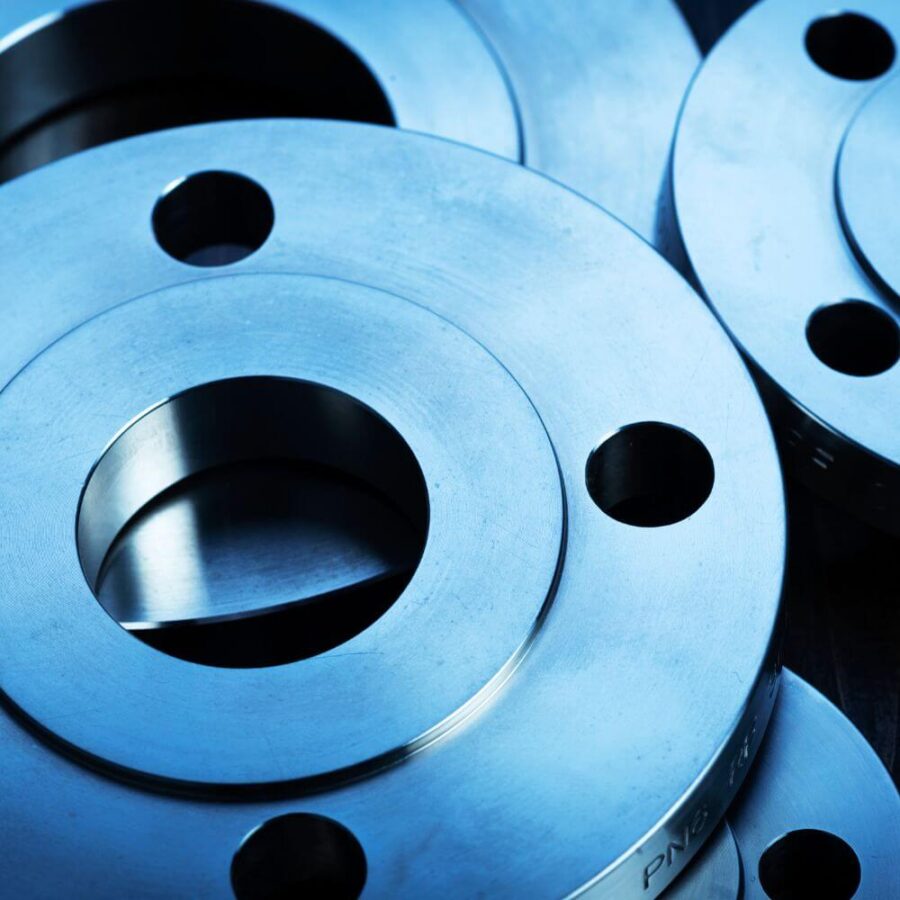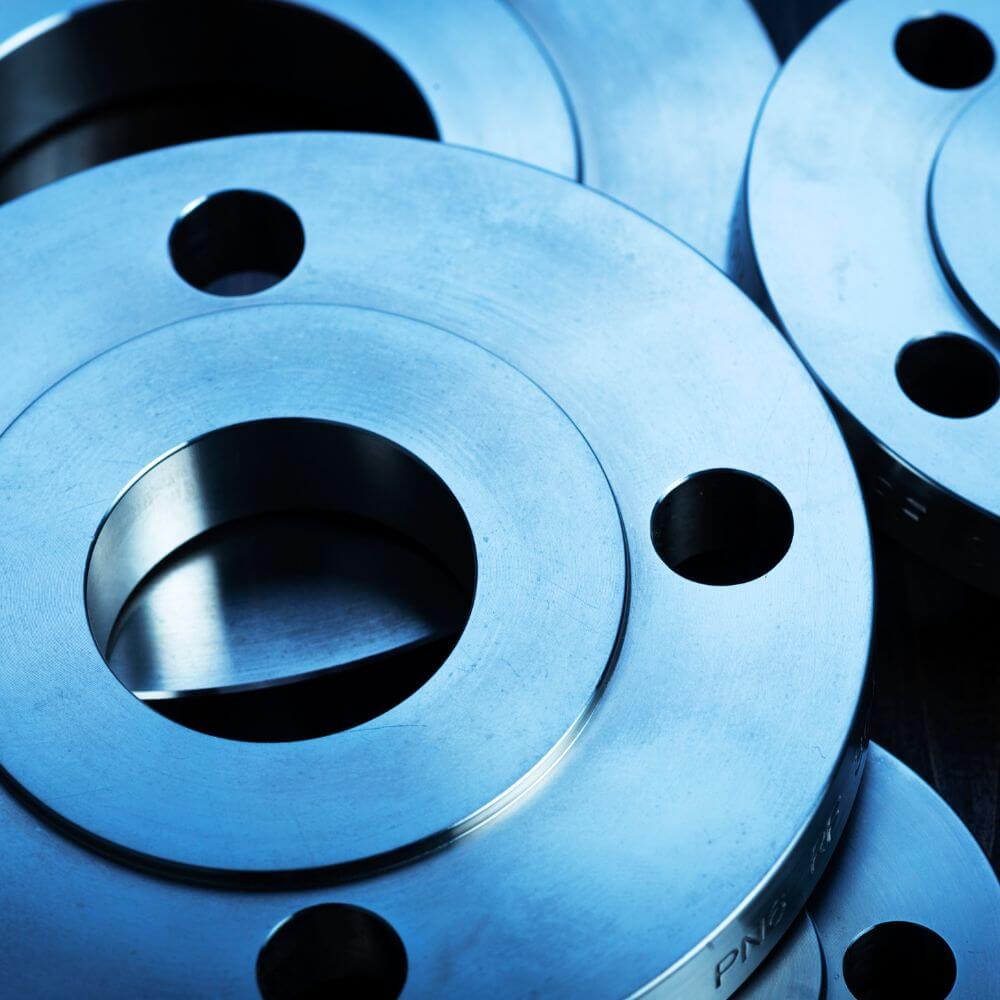
Why is Carbon Steel Important for Oil & Gas Applications?

Carbon steel forged flanges are a crucial component in many industrial applications. They provide a secure and sealed connection between two pipes or other fittings. With them, connecting several piping components would be much easier and more reliable. They offer a secure seal, and carbon steel forged flanges reduce costs and increase efficiency for many industrial operations. By understanding the benefits these flanges provide, you can ensure that your industrial processes run smoothly and efficiently.
Why are Carbon Steel Forged Flanges Important for the Oil and Gas Industry?
Carbon steel forged flanges are essential for the oil and gas industry because they are strong and durable and can withstand the high pressure and temperature conditions in oil and gas pipelines. They are also resistant to corrosion and can be used in offshore and onshore applications. Carbon steel forged flanges are also relatively easy to manufacture, which makes them a cost-effective choice for the oil and gas industry.
What are the Different Types of Carbon Steel Flanges?
There are several different types of carbon steel flanges, including:
- Slip-On Flanges: These flanges are designed to be slipped over the end of a pipe and then welded in place.
- Weld Neck Flanges: These flanges have a neck that extends from the flange’s base, allowing for a smooth transition between the flange and the piping.
- Blind Flanges: These flanges seal off the end of a piping system. They have no bore and are used to terminate a line or to provide closure at the end of a piping system.
- Socket Weld Flanges: These flanges are designed to be welded to the end of a pipe using a socket-weld joint.
- Threaded Flanges: These flanges have threads on the inside and outside. The threads allow them to screw onto the end of a pipe.
- Lap Joint Flanges: These flanges have a small lip at the back that allows them to be slipped over the end of a pipe and then attached to the piping system using a lap joint stub end.
- Orifice Flanges: These flanges measure the flow rate of fluids in a piping system. They have a concentric ring in the center that attaches an orifice plate.
- Spectacle Blind Flanges: These flanges consist of two metal discs connected by a small spacer ring. They are used to isolate a piping section or close a branch connection.
What Types of Applications Require the Use of Carbon Steel for Forged Flanges?
Carbon steel forged flanges are used in a wide range of applications, including:
- Oil and gas pipelines: Carbon steel forged flanges are commonly used in the oil and gas industry because they are strong and durable and can withstand the high pressure and temperature conditions found in these types of pipelines.
- Chemical processing: Carbon steel forged flanges are resistant to corrosion and can be used in chemical processing plants to handle corrosive fluids.
- Power generation: Carbon steel forged flanges are used in power plants to connect pipes in the steam and water systems.
- Water treatment: Carbon steel forged flanges are used in water treatment plants to connect pipes in the water distribution system.
- Mining: Carbon steel forged flanges are used in the mining industry to connect pipes in the slurry and wastewater systems.
- Food processing: Carbon steel forged flanges are used in food processing plants to connect pipes in the water and sanitation systems.
- Shipbuilding: Carbon steel forged flanges are used in the construction of ships to connect pipes in the ballast and bilge systems.
Why Choose Carbon Steel over Stainless Steel for Forged Flanges?
There are several reasons why carbon steel may be a more suitable choice for forged flanges over stainless steel, including:
- Cost: Carbon steel is generally less expensive than stainless steel, so carbon steel forged flanges may be more cost-effective for some applications.
- Strength: Carbon steel is stronger than stainless steel so it can withstand higher pressures and temperatures. This makes it a good choice for high-pressure and high-temperature applications.
- Machinability: Carbon steel is more accessible to machines than stainless steel, so it is generally easier and faster to manufacture forged flanges from carbon steel.
- Corrosion resistance: Stainless steel is more corrosion-resistant than carbon steel. Yet, carbon steel can be protected against corrosion through coatings and other protective measures.
In general, the choice between carbon steel and stainless steel for forged flanges will depend on the application’s specific requirements, including the required strength and corrosion resistance, as well as the cost constraints of the project.
Contact Forged Components for Carbon Steel Flanges
Finding a trusted supplier of forged components can be challenging. Choosing the right company could result in a long wait and products that need to meet your needs. The proper forged flanges manufacturer can make all the difference in success in your industry.
We’re a leading manufacturer of forged components and offer custom designs to meet your needs. Contact us at (281) 441-4088 or send us a quote online to find out about our custom design services.
